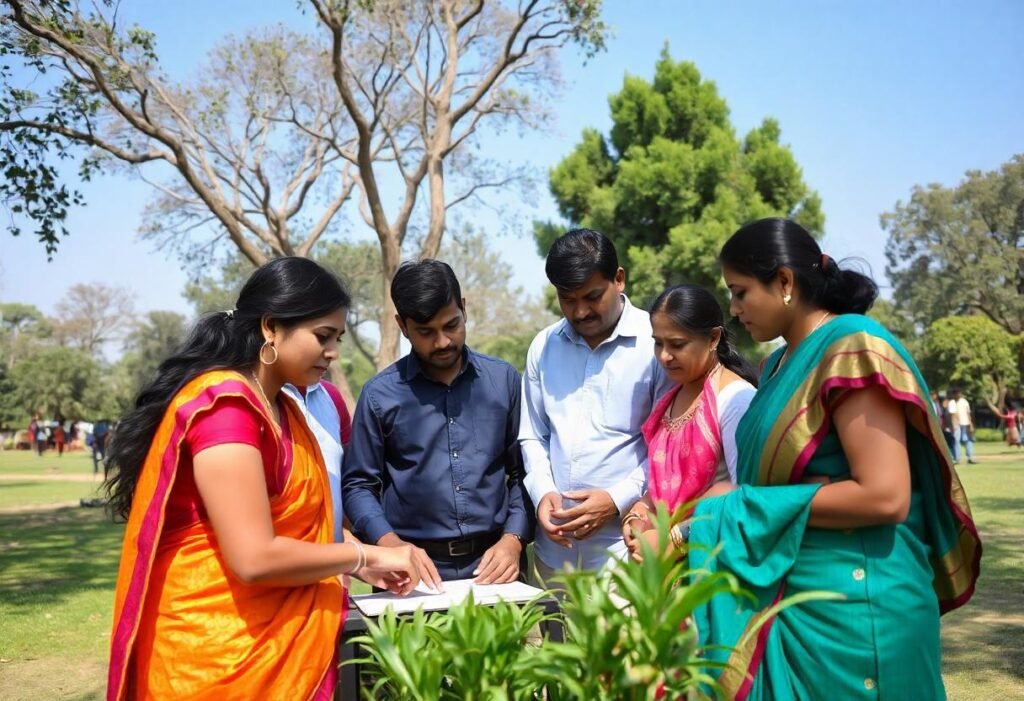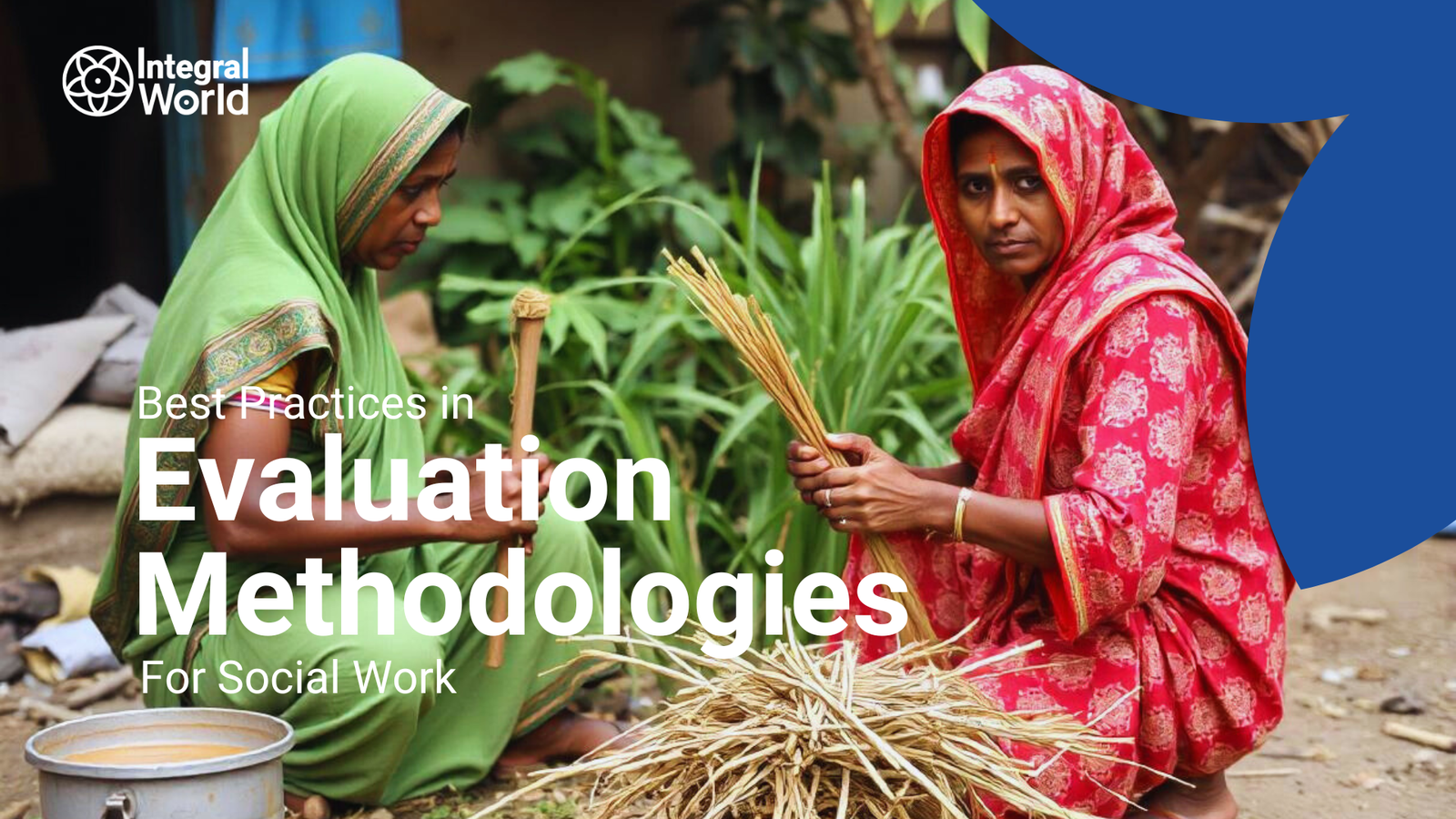When evaluating programs, their impact and effectiveness, and appropriate evaluation methodologies should be the main concerns guiding this undertaking as it ensures that resources are being used efficiently and interventions are meaningful for beneficiaries. Such practices, therefore, enable Integral World- a leader in sustainable and holistic development- to influence positive change and accountability within its stakeholders.
This paper discusses the best practices in evaluation methodologies for social work with detailed examples; success stories and expert opinions are also indicated to show how they can be of interest to organization intending to undertake these services.
Effective social work relies on evaluation as its overall framework since it provides a systematic way of assessing program design, implementation and outcomes. Evaluation methodologies by Integral World is not just about procedural necessity but transparency, learning and continuous improvement. We will explore more deeply into this topic by looking at how some organizations have made use of evaluation methods to achieve this aim or purpose.
Best Practices in Evaluation Methodologies

Define Clear Objectives and Indicators
Objective Setting: The foundation of any evaluation is the clear articulation of what the program aims to achieve. Objectives should be Specific, Measurable, Achievable, Relevant, and Time-bound (SMART).
Indicators: Develop key performance indicators (KPIs) that align with your objectives. These indicators help in measuring progress and outcomes effectively.
Use Mixed-Methods Approach
Quantitative Methods: Utilize surveys, tests, and statistical analysis to gather numerical data that can be quantified and analyzed objectively.
Qualitative Methods: Employ interviews, focus groups, and case studies to collect detailed insights and personal experiences that provide context to the quantitative data.
Engage Stakeholders
Inclusive Evaluation: Involve all relevant stakeholders, including beneficiaries, community leaders, and staff, in the evaluation process. Their insights and perspectives are invaluable.
Participatory Methods: Implement participatory evaluation techniques where stakeholders actively contribute to data collection and analysis.
Employ Real-Time Monitoring and Evaluation (M&E)
Continuous Monitoring: Establish mechanisms for real-time monitoring to track progress continuously and make timely adjustments.
Technology Integration: Use mobile apps, online dashboards, and other digital tools to facilitate real-time data collection and analysis.
Expert Opinion: According to Dr.Michael Bamberger- an expert in evaluation methodologies –”Real time monitoring allows organizations to quickly respond to emerging program issues ensuring interventions remain relevant and effective.”
Utilize Randomized Controlled Trials (RCTs)
RCTs: Consider using randomized controlled trials to rigorously evaluate the impact of interventions. Researchers consider RCTs the gold standard in impact evaluation because they provide robust evidence of causality.
Focus on Sustainability and Long-Term Impact
Sustainability Metrics: Develop indicators that measure long-term sustainability of program outcomes. It may include environmental, social, and economic aspects.
Long-Term Follow-Up: Conduct follow-up evaluations to determine if interventions have lasting effects.
Foster a Culture of Learning and Improvement
Feedback Loops: Create mechanisms for regular feedback from stakeholders so as to continuously learn and adapt accordingly.
Capacity Building: Invest in staff training and capacity building for partners to improve their evaluation skills.
Expert Opinion: According to Dr. Patricia Rogers, an evaluation expert with international recognition, “Creating an organizational culture of learning is vital; it ensures that evaluations do not become external compliance exercises but are merged into programs as part of improvements.”
Expert Opinions on Best Practices

Dr. Robert Chambers, a pioneer in participatory development, emphasizes the importance of involving beneficiaries in designing evaluative frameworks. “The use of participatory methods not only provides richer data but also empowers communities, ensuring that interventions are more sustainable and impactful.”
Dr. Esther Duflo, a Nobel laureate in economics, argues for using RCTs with social programs. “There is no stronger evidence than from randomized control trials (RCTs) which allow policy makers and practitioners to allocate resources efficiently and achieve better results.”
Dr. Jane Goodall, renowned for her work in community-centered conservation , underscores the importance of sustainability metrics “Long term sustainability must be central to each assessment made; it is not just about immediate events but benefits should last into future generations.”
Actionable Tips for Organizations
- Start with Clear Objectives: Define what success looks like for your program and establish SMART objectives and indicators.
- Embrace Mixed-Methods: Employ various research techniques such as quantitative together with qualitative methods to give an all-round understanding of how your program has fared.
- Engage Stakeholders: To gather different opinions and promote ownership, you should involve the recipients of aid and other parties in evaluating them.
- Invest in Real-Time Monitoring: Continuous monitoring enabled by technology is necessary for timely response to emerging issues.
- Consider RCTs: Use randomized controlled trials to evaluate impacts rigorously when implementing large-scale or innovative projects.
- Focus on Sustainability: For your program’s results, one has to develop measures that take into account their durability.
- Foster a Learning Culture: Feed back mechanisms as well as investment on capacity building are very useful in ensuring that learning never stops and there is always room for improvement.
Integral World’s Commitment to Excellence in Evaluation
At Integral World, we believe that rigorous and inclusive evaluation methodologies are crucial to attaining our mission of sustainable and holistic development. By employing best practices in evaluation, we not only ensure the effectiveness and impact of our programs but also foster a culture of learning and continuous improvement. Clear objectives, mixed-methods approaches, stakeholder engagement, real-time monitoring, RCTs, and a focus on sustainability have enabled us drive impactful transformation in communities worldwide.
We invite other organizations, practitioners, and stakeholders to join us in our commitment to excellence in evaluation. By sharing best practices, collaborating on innovative solutions, and continuously striving for improvement, we can collectively enhance the impact of our social work initiatives.
For more insights and resources on evaluation methodologies and best practices, follow Integral World on LinkedIn. visit our website. Together we can create a world where every development initiative realizes its full potential.


1 Comment
Thank you for some other magnificent article. Where else may anyone get that kind of info in such an ideal method of writing? I’ve a presentation subsequent week, and I’m at the search for such information.
Comments are closed for this article!